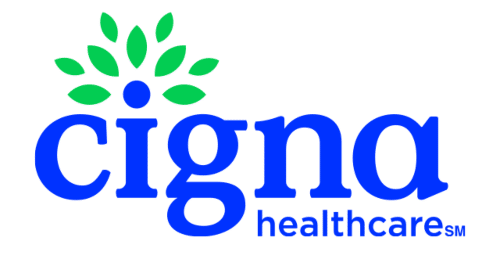It can take people many turbulent and painful years to decide to join a rehab program. It can take a long time before you even realize or admit to your addiction. Making an effort to actually seek help is such a challenge that most people don’t even try.
Of the 21.6 million people who have a substance use disorder, only 10.3% received any treatment this past year. Of the 18.9 million people who didn’t receive it, only 4.3% felt they needed treatment, and only about 1/3 of them made an effort to get treatment. (Data from the latest NSDUH survey)
Once you’ve made the decision to seek help, you might ask yourself, “Is 30 days of rehab enough?”
Surely, you’re getting treatment with the goal of maintaining your sobriety. But how long should you be in rehab to avoid relapse in the future?
If you’re asking these questions, it’s important to understand what you can and cannot get in 30 days of treatment.
30 Days in Rehab – The Reality
When you decide to join a rehab center, you might receive a lot of encouragement from your loved ones. Despite the encouragement, it’s still natural to have a lot of doubts and overall skepticism.
If you’re wondering, “Will 30 days in rehab actually help me?” you’re not alone. Many people have tried rehab before and find themselves in and out of it.
Between 40%-60% of people with drug/alcohol addiction end up relapsing.
Are 30 Days Enough to Help You?
Yes, it can be.
You can accomplish a lot in 30 days of rehab:
- Medical and psychiatric evaluation
- Withdrawal symptoms assessment/management
- Education on addiction and how it’s affected you
- Group counseling
- Activity-based therapy (yoga, meditation, art, etc.).
A lot of these things will give you knowledge and tools that can benefit you your whole life. But, it might not be enough for everyone.
The “30 days is all it takes to break a habit” mantra has been popularized by the media and encouraged by insurance companies. It’s also the standard amount of time for inpatient/residential treatment.
While 30 days of rehab can build a strong foundation, it’s not necessarily enough time to break free from addiction completely.
Addiction is a disease that centers in the brain, and it takes a dedicated individual to heal themself from it. This is why aftercare and support groups are so important. They keep us accountable and remind us why we are abstaining from our drugs of choice.
When 30 Days Isn’t Enough
After 30 days of rehab, the person in recovery has to go back to the reality of facing the challenges of daily life. And they need to do so without the crutch they’ve gone to time and time again.
People who have not experienced addiction don’t realize how difficult this can be. When times get rough, and they inevitably do, we get our strongest urges to abuse substances.
30 days is enough to get educated on the nuances of addiction, but it’s not enough time to change your life. You’ve got to put in the work to better yourself while avoiding the drug that has brought you comfort.
It’s truly not an easy process to go through. Even with a roadmap of what to do, a person may steer away from the road laid out for them. This is true beyond just addiction.
In one study, only 19% of patients adhered to their doctors’ exercise regimens. In another study involving a physical therapy regimen, only 35% of patients adhered, and of those who adhered, 76% of them only followed part of their prescribed regimen.
When you consider these statistics, it makes sense that an addict can easily move away from their life in sobriety and back into substance abuse.
An easy way to put 30 days of rehab into perspective, many people should ask themselves, is 30 days of exercise to help someone sedentary? Yes, that exercise will help them, but unless they stick with it, they’re not going to reach the level of health they desire.
When it comes to overcoming drug addiction, most people will need much longer treatment than 30 days to put the things they’ve learned into practice.
How Long Will Be Enough Rehab?
30 days can be a huge stepping stone, but how much it will help depends on the individual and where they are by the end of it. Since it’s becoming more well-known that 30 days isn’t long enough for rehab, there’s been a boost in the popularity of 90-day rehab programs.
A recent study of 72 people around the age of 30 received treatment for a variety of addictions, including alcohol and drugs such as opioids, amphetamines, and benzodiazepines. After one year, the treatment success rate was 55% for those who underwent the 30-day treatment and 84% for those in the longer treatments.
The length of treatment depends on a lot of individual variables. The rate of success always relates to the amount of time you’re able to stick with the lifestyle changes you’ve learned.
What’s the Ideal Approach to Rehab?
The best bet for successful treatment for substance use disorder is to tailor the treatment to the individual. There are different levels of care for different stages of addiction recovery.
The first stage is full detox. Before rehab treatment can begin, you need to cleanse yourself of intoxicants safely. Detox alone can take a few days to a few weeks out of 30-day rehab. It’s hard to make the most out of a 30-day treatment plan if the detox alone takes up a large portion of it.
This is why we break up treatment into different levels of care. The first step is a medically assisted detox. This includes an evaluation from both a medical doctor and a licensed psychiatrist. They will evaluate your history and create a tailored medical regime for you.
After detox, the next step is an inpatient residential program. Some patients may need to go into the partial hospitalization program afterward, while others might be ready for either the intensive outpatient program or receive less intensive outpatient treatment.
While 30 days of rehab is enough for some people, not everyone will enter that program in the same place. Someone who takes two weeks to detox during those 30 days will not get as much out of group discussion or activity-based therapy as someone who only needs one day to detox. It’s not optimal for you to pay for treatment that isn’t right for the stage you’re at.
Exceed Expectations
A lot of treatment facilities don’t fully grasp the meaning of rehab. Rehab is a means of treatment, but it’s not a cure. Facilities that advertise their success rates are going off vague, often short-term numbers.
Some rehab programs may treat relapse as a failure or as part of the process. Defining successful rehab is difficult because there’s not one single definition. Ultimately, it comes down to what you want your life to look like and which goals you want to accomplish while overcoming addiction.
For more information on the different levels of care we offer, contact us or give us a call at (949) 403-6629, and our specialists will help you get started on a tailored program.













